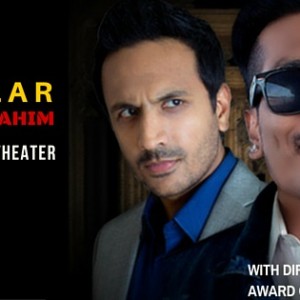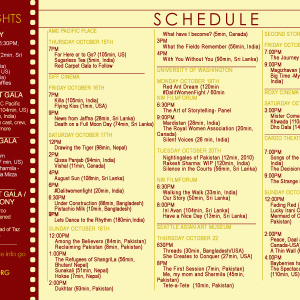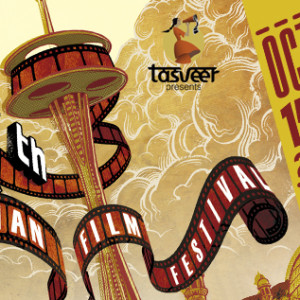SUNDAY, OCTOBER 25th | 2PM | CARCO THEATER, RENTON | Buy Tickets
 The partition of the Indian Subcontinent took place over 60 years ago along mostly religious lines. Hindus and Sikhs from present day Pakistan and Bangladesh were to migrate to present day India and Muslims were to migrate to present day Pakistan and Bangladesh. This was one of the largest migrations in human history and it was bloody. Though many years have now passed, some pain still remains and has been passed down through generations. As survivors of this major event are slowly dying of old age, many efforts are being made to capture their stories.
The partition of the Indian Subcontinent took place over 60 years ago along mostly religious lines. Hindus and Sikhs from present day Pakistan and Bangladesh were to migrate to present day India and Muslims were to migrate to present day Pakistan and Bangladesh. This was one of the largest migrations in human history and it was bloody. Though many years have now passed, some pain still remains and has been passed down through generations. As survivors of this major event are slowly dying of old age, many efforts are being made to capture their stories.
In A Thin Wall, director Mara Ahmed and her co-producer Surbhi Dewan, capture stories from both sides of the Indian/Pakistani border and dare to share a dream when friends and family separated by the border can one day easily see one another. Paisley Smith shares a very personal exploration of her own family’s partition story in her short film Peace, Daal and Partition. We hope that showing these films and the Q&A session with the filmmakers will encourage members of the Seattle Community to share their own family stories of partition and heal old wounds.
A note from Peace, Daal & Partition director Paisley Smith:
The Partition of India in 1947 was a terrible tragedy with millions of lives senselessly lost. After tragedy, how does someone begin to see life in a normal way? It is extremely difficult for me to imagine my Grandmother experiencing the tragic events of Partition, the loss of her father, and the subsequent isolation they felt growing up in India without a father. The impact of these events have shaped her life and identity. To me she is someone who is extremely strong, even if she does not recognize it herself. It is equally difficult for me to imagine my mom being bullied as a young immigrant in Canada. To me she is the definition of confident and an independent woman. To imagine her as a child at all is difficult as she rarely talks about her more vulnerable years.
Peace, Daal, & Partition was never intended to be a film about my family, but it took that shape as we began to shoot the film. Traveling to Vancouver to shoot was not a plan. When the opportunity arose, we took the chance. It was during this intense three day trip from Los Angeles that we squeezed in an interview with my mom. The story changed forever. The original pitch for this documentary focused on bringing together survivors from different sides of the Partition line. Over a delicious Indian meal (that I would learn to cook) the guests would be so moved, that any problems would be solved. This idea is now ridiculous to me. I see how flawed it is to try and make change over one dinner, or even in a short film.
While shooting in Vancouver, I resisted making a film about my family, and often steered interviews towards a food related history. The film we ended up making is personal, it’s emotional, it’s sincere. In a way, it’s exactly what I tried to avoid making by focusing on food and history. It is extremely hard to be vulnerable. It’s a lot easier to avoid the truth, to be cynical, and to move on without addressing the past. This is the film. It’s about my family. I hope by watching it, the audience will connect with our story, and see that it is okay to sit down and talk about difficult topics. It is my hope that anyone with trauma in their family history will be inspired to talk about the issues and maybe even discover how these events are effecting them in the present. Here’s to talking about the past and embracing the present. Thank you for watching the film – Paisley
A note from A Thin Wall director Mara Ahmed:
Surbhi and I both grew up with stories of Partition. Maybe they inspired our interest in displacement and our need to bridge cultural and geographic distances. Our families made the same terrifying voyage in 1947, but in opposite directions. We feel that Partition’s shadow still looms large in the subcontinent. It shaped the relationship between the two newly independent states of Pakistan and India. There is a need to revisit those stories in order to move beyond them. There is also a need to preserve and document this historical event, in the intimate voices of those who lived through it.




